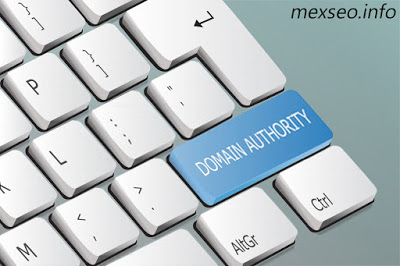What Is Domain Authority and How Can You Improve It?
But Google’s most successful On-Page SEO efforts are not enough to rank on. The search engine currently reports more than 200 situations as it determines the pecking quantity of a SERP, and optimizing the website and content for all of its ranking criteria is practically impossible.
But even if you can’t optimize for every ranking factor in Google, you can still optimize for one of the most important ranking factors in the search engine — domain authority.
From Google’s point of view, domain authority is similar to the reputation of being a leader in knowledge of your website. The computer program works with your domain authority to ensure you have the highest quality material for your subject matter. You will have good authority over the domain if you do, and Google will increase the rankings for your content. If you don’t, your domain authority will be lousy, and they won’t rate your material.
Contents
Before we venture further into how domain authority affects your rankings and how you can improve your authority score, let’s go beyond just what it is.
What is domain authority?
Formed by the SEO software company Moz, domain authority is a search engine ranking score that assumes a website’s capability to rank on search engine results pages or SERPs. The Authority of the domain varies from a score of 1 to 100. The larger your score, the better your website will rank.
Moz accounts for over 40 conditions, such as root domains and the total amount of inbound links, to measure the domain authority of websites. Sites with a tremendous amount of inbound high quality connections, such as Wikipedia page creation, have the most powerful authority of domain. New websites with no inbound links, usually have one or two domain authority.
Moz‘s calculation of domain authority is also logarithmic, which indicates whether your authority of the domain is higher, raising your authority score is more difficult. For example, it’s more complicated to boost your domain authority from 20 to 30 than to 80 to 70 authority.
In addition, your website’s domain authority can decrease, even if you do not lose any backlinks, when a website with high authority, such as Facebook, gets a flow of backlinks.
Since Moz can not offer a domain authority score of over 100 to the highest-authority websites, they retain their score at 100 while decreasing the authority of other sites. Eventually, your website’s domain authority is relevant to the website’s domain authority with the highest authority.
What is a good domain authority score?
It is best used as a comparable metric in Moz’s words — a “good” authority of the domain score is based on the domain authority of the sites with which you compete on SERP. In light of this, your goal should not be to have the highest desirable authority score but to have a higher authority score than your opponents.
To calculate your domain authority, try MozBar, a free Chrome extension. The tool can also measure the ranking choice for specific queries and keywords on your website. Authority scores are a significant measure of the importance of backlinks to other domains, too.
How do you improve your domain authority?
- Audit your link profile
- Make compelling content
- Earn high-quality links
1. Audit your link profile.
Google recommends linking profiles — an list of all the backlinks in your website — to bring links from a large form in website and high-level websites. This is recognized by the computer program as an example of an authoritative and trustworthy Website.
Free SEO tools like SEMrush Backlink Checker and Moz’s Link Explorer can help you measure the health of your link profile.
2. Create compelling content.
Part of Google’s search algorithm rates the content mainly based on interaction metrics, such as overall traffic, organic traffic, direct traffic via Chrome, page time, bounce rate, SERP CTR, all connections to authoritative websites, and return visits.
Creating high-quality content is the only way to boost your website’s engagement and, in turn, domain authority. You must attract and engage a loyal audience. Fascinating content from other websites in your industry will also attract the most organic backlinks.
3. Earn high-quality links.
Increasing your domain authority requires obtaining high-quality incoming inbound links from websites and pages with high authority scores. To obtain these backlinks, try using Backlinko’s skyscraper method.
The skyscraper technique is an SEO technique in which you find content that ranks well for keywords that you would like to rank. If a competitor’s content ranks number one, then they would have a lot of backlinks. You then generate higher content than the highest-ranking blogs and use SEO software to scan all the pages connected to your competitor’s content. In the end, you are increasing the first relevant websites to replace the link to your competitor with a link to your increased content.
In 2016, Backlinko asked 160 websites to link to their post on Google’s 200 Ranking Criteria, receiving 17 inbound links, which is an 11 percent success rate. In addition, 17 backlinks do not seem like much; many of those referencing websites had higher domain authority scores, so the post’s organic traffic was boosted by 110 percent in just two weeks.
Another technique is to invite other websites with a higher domain or page authority score to link to your top content. Just make sure the content is linked to the content of the cited website.
Play the long game with domain authority
Eventually, in the short term, you may not directly manage your website’s domain authority. Yet if you consistently track the health of your link profile, generate compelling content, and receive high-quality links, your domain’s authority can gradually increase, improving your long-term Google rankings and organic traffic.
